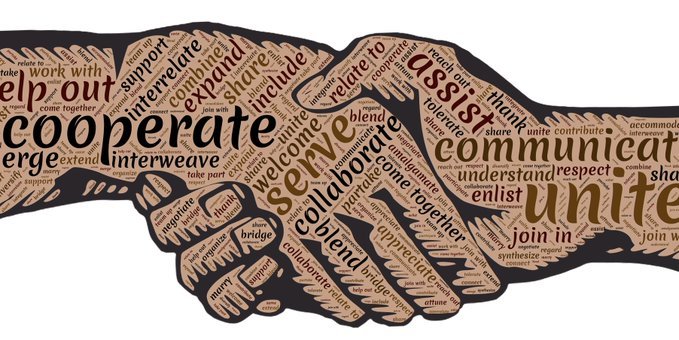People of all genders can experience depression, anxiety, and other mental health issues. I think that one can reap massive returns from believing in things people think are stupid until it’s no longer stupid, which is why immunity to embarrassment is such an important superpower for founders and investors. And I tend to follow the Brain Tracy advice - “Never complain, never explain. Resist the temptation to defend yourself or make excuses.”
A gift
Six things mentally strong people do:
1. They move on and don’t waste time feeling sorry for themselves.
2. They embrace change and welcome challenges.
3. They stay happy and don’t waste energy on things they can’t control.
4. They are kind, fair and unafraid to speak up.
5. They are willing to take calculated risks.
6. They celebrate other people’s success and don’t resent that success.
No one likes us
Where do your beliefs and opinions come from?
People need to process information quickly to protect themselves from harm. Most people believe that their opinions are based on years of experience and objective analysis of the information they have available. Everyone thinks they are rational, logical, and impartial. We are susceptible to confirmation bias as many factors of which people are unaware can influence our information processing. Humans are better able to rationally process information, giving equal weight to multiple viewpoints, if they are emotionally distant from the issue. Another reason people show confirmation bias is to protect their self-esteem.
Here are some examples of confirmation bias:
· Not seeking out objective facts
· Interpreting information to support your existing belief
· Only remembering details that uphold your belief
· Ignoring information that challenges your belief
Humans are bombarded with information in the social world and cannot possibly take the time to carefully process each piece of information to form an unbiased conclusion. I think that human decision making and information processing is often biased because people want to feel that they are intelligent. When informationarrives that suggests one holds an inaccurate belief or made a poor decision this may make one feel he’s lacking intelligence, therefore, we tend to listen only to the information that confirms our preconceptions.
A process to understand
I recently discovered a beautiful Hebrew word, “kavod”, and it means honour and respect. Honour and respect are very important in any society but even more so in Middle Eastern societies. The Middle East is a place where people swear “on the honour of their mother” without thinking too much. Perhaps we should ask ourselves, “Is it kavod?” before everything we say, think, or do.
Most people don’t know the difference between coaching, mentoring, and training. Rather than having a one size fits all approach, I try to use self-discovery methods to enable the customer to see where they fit in. If you want your brand to stand out in these competitive, unstable times, you’ll want to shift from a product-based “what” brand to a mission-driven “why” business. Shifting your brand and business from “What” to “Why" will bring huge economic benefit and help you secure optimal customer preference and loyalty.
Once upon a time
Illustration by Liz Fosslien ©
As a guest lecturer my role was always to help the students to create some kind of value from day one. I was not expecting them to be mini-CEOs, all I expected was open-minded fresh thinkers who are willing to learn and where possible offer value. Technology, products, and services flow effortlessly around students and the way they navigate them is totally different than someone like me.
1. I ask them to reflect and articulate what they see?
2. What are the values that are important to them?
3. How can a brand (product) or service tap into their important values better than now, and in relation for their future audience?
I met 3 types of students:
“The hopeful” - Who were excited about the creative industries and the possibilities. My role was to give them a deeper sense of reality
“The disrupter” - I can do it better type! Here I would give them another perspective, a greater sense of realism and balance so they could better understand the change mechanism and transformation.
“Help me” - The ones where the challenge was not meeting their expectations.
Growth is a process
Too often experts will dive into their presentation without presenting a roadmap and this usually leaves the audience unsure about what is going to be covered, why and when the presentation will end. Presenting a table of contents before they dive in and begin to talk puts everything into context and helps your audience to know where they are in the presentation. Road mapping allows the audience to see the key points you are going to explore and puts them into context and helps them relax into your teaching and allows them to relate it to the bigger picture and the promise of your presentation. I think if you implement this simple framework with your content, copywriting and speaking you will begin to see a sense of trust, and ultimately this will lead to more conversions.
The start of the work week
I have never let any constraints block my path. Here’s a few tips in how to improve your social skills:
Say 'Thank you'
Say 'Please'
Listen without interrupting
Do not brag
Wait your turn
Choose kind over clever
Hold doors open longer
Forgive first
Talk less, but say more
Show gratitude
Do not respond to negativity
Be humble
““When you arise in the morning think of what a privilege it is to be alive, to think, to enjoy, to love…””
Sunday exercise
To paraphrase Henry David Thoreau: “It’s not what you look at that matters, it’s what you see.” I have been a big fan of Byron Katie for many years, so I would like to give you an opportunity to get familiar with her work. Write down your stressful thoughts, and then ask yourself the following four questions:
1: Is it true?
Ask yourself if the thought you wrote down is true.
2: Can you absolutely know it’s true?
This is another opportunity to open your mind and to go deeper into the unknown, to find the answers that live beneath what we think we know.
3: What happens? How do you react when you believe that thought?
What do you feel? How do you treat the person (or the situation) you’ve written about, how do you treat yourself, when you believe that thought? Make a list, and be specific.
4: Who would you be without the thought?
Imagine yourself in the presence of that person (or in that situation), without believing the thought. How would your life be different if you didn’t have the ability to even think the stressful thought? How would you feel? Which do you prefer—life with or without the thought? Which feels kinder, more peaceful?
“I discovered that when I believed my thoughts I suffered, but when I didn’t believe them I didn’t suffer, and that this is true for every human being. Freedom is as simple as that.”
Basic goal setting
When setting a proper goal whether it be for your career, physical, spiritual, social, family, intellectual, or financial well being, you need to make sure it follows this simple format:
S – Specific
M – Measurable
A – Achievable
R – Realistic
T – Timely
I think a good way to ensure you’re able to stick to your goals is by setting SMART goals. Do something today that is going to move you out of your comfort zone and put you one step closer to achieving the goals you have set for yourself.
The little pause
Unlike other animals, humans spend a lot of time thinking about what isn’t going on around them: contemplating events that happened in the past, might happen in the future, or may never happen at all. Disruption is a down-to-earth method whose objective is to help us think with our rational brains and emotional hearts. It’s not about making things complicated, nor is it an exclusively rational concept but it’s a method whose objective is to release feelings, intuitions, and emotions. I think we should focus on innovation and create results through good conflicts within an innovation culture as nothing teaches us better than our own experiences.
Goal-setting theory
The American organisational psychologist, Edwin A. Locke pioneered the goal-setting theory. The simplest and most direct explanation of why some people perform better than others is because they have different performance goals. I think that nothing intelligent has ever come from intelligence alone, and nothing reasonable has ever come from reason alone. The essence of the theory is:
Difficult specific goals lead to significantly higher performance than easy goals, no goals, or even the setting of an abstract goal such as urging people to do their best.
Holding ability constant, and given that there is goal commitment, the higher the goal the higher the performance.
Variables such as praise, feedback, or the participation of people in decision-making about the goal only influence behaviour to the extent that they lead to the setting of and subsequent commitment to a specific difficult goal.
Traditions are hard to change
Goal setting involves the development of an action plan designed to motivate and guide a person or group towards a goal. We are fast approaching that time of the year where your New Year’s resolutions begin to fade. Remember that as long as you are doing something to achieve your goal, you are making progress. It’s easy to become caught up in routine, but sometimes all you need is a small change of perspective to get the ideas flowing and feel motivated again.
The F.O.C.U.S acronym = Follow > One > Course > Until > Success
Does this sound familiar?
Distractions have no effect on the truly focused individual as winners focus on the goal, not the pain. There four types of distractions or should I call them, interruptions you will face in your work:
1. Meetings, office visitors and loud colleagues
2. E-mail, telephone notifications and meetings
3. Team lunches, calls from loved one, coffee machine conversations
4. Social media, news websites, instant messaging
According to Tim Ferris, we need to “…limit e-mail consumption and production. This is the greatest single interruption in the modern world.” What do you think?
A deep human focus
There may be things present in our lives and our habits that we are not happy about. We want change, yet as hard as we try, sometimes, we are just not seeing the level of profound change we desire. Is there an area of your life you’ve tried changing, made some progress but somehow ended up in the same spot you started in? Real behaviour changes are very difficult to bring about by effort and willpower alone. Contact me via e-mail for 1:1 consultations.
“There are things known and there are things unknown, and in between are the doors of perception.”
Disciplined and dangerous
I started watching Chelsea regularly in the 70’s when we were languishing in the old 2nd Division and financially broke. Yesterday in Abu Dhabi we beat Brazil's Palmeiras 2-1 to win the FIFA Club World Cup for the first time. We are the World Club Champions! It’s weird to say, but it’s a fact that Chelsea FC are only the fifth team to have won every trophy available, the others are: Ajax, Bayern Munich, Juventus and Manchester United.
Focus on things under your control
Often, we focus on things that don’t matter and things that are beyond our control. In times of crisis, organisations often forget about their sales and marketing strategies because there’s so much else to focus on and this results in wasted time and wasted opportunities. For me it’s all about customer satisfaction, giving good advice and solving customer problems to improve their customer’s lives.
I think knowing which things we should focus on is key to getting what we want. From my perspective, customer loyalty is truly satisfying and many of my customers have become real friends. Focusing on the human side instead of the sales and marketing side helps because visibility to attract new customers is key to expanding my customer base as I work in human-to-human industry.
Was it worth it?
Time management is very important and we have the ability to manage our time. When we talk about time management there’s usually the ‘tips to be more efficient’, but that’s not the point of time management. It’s not all about being more efficient and productive, as it may lead to stress and overworking. It’s about embracing our freedom to choose what we want to do with our time, being able to understand that time is limited and that it’s up to our own judgement as to how we want to spend it. We have this tendency to trick ourselves into thinking we’re not free because being free to use your time as you please, means that you have to make a choice and live with the consequences of that choice. In reality, we do have time and time can be managed, it’s just that we don’t have a lot of it so there has to be sacrifices.
“Man is condemned to be free; because once thrown into the world, he is responsible for everything he does. It is up to you to give life a meaning.”
Research shows that whenever people start thinking of time as money, they become greedy, less happy, and more restless. When time is spent without consideration, it becomes a persistent source of regret. How many times do you catch yourself ‘wasting time online,’ spending hours on Facebook not learning anything? I think that when it comes to time, we can either make excuses or sacrifices but only one of them will allow you to live a meaningful life.
Repetition is the key to success
To drive lasting productivity, make assessing your progress and enjoying the fruits of your labour part of your routine. I think life and work will always be messy, therefore, trouble shooting, firefighting and problem solving are how we spend a lot of our time so let’s make sure we enjoy it! Contact me via e-mail for practical, actionable tips, which will guide you to achieving even more throughout each day.
“For a long time it seemed to me that life was about to begin - real life. But there was always some obstacle in the way, something to be gotten through first, some unfinished business, time still to be served, a debt to be paid. At last it dawned on me that these obstacles were my life.”
Peaks and troughs
The Day Reconstruction Model (DRM) measures how people spend their time and how they emotionally experience the various activities and settings of their lives, combining features of time-budget measurement and experience sampling. It looks a little like this:
PEAK - Usually in the morning and is the ideal time to do your heavy analytical work.
TROUGH - Early afternoon, here I would advise you to do adminstrative work.
RECOVERY (also known as the rebound) - Late afternoon/early evening and is the perfect time to do your insightful work.
Negativity is on the rise in the afternoon and falls during the evening. Understanding this pattern will have a very direct impact on the work you do and also when you schedule important meetings.
“We need to start thinking of breaks as a part of performance rather than a deviation from performance.”
Timing is a science
According to my dictionary, when you say something is perfect it means it’s as good as it could possibly be. Timing on the other hand is used to refer to the time at which something happens or is planned to happen, or the length of time that something takes.
There is an emotional pattern to our daily lives. There is a genuine mood of positivity that peaks during the morning, drops during the afternoon, and then climbs back up in the evening. This prevailing cycle of moods happen every weekday to everyone, regardless of race or nationality. Behavioural scientists from Cornell University using the Day Reconstruction Method (DRM) and going hour by hour through people’s lives found the same pattern.





















